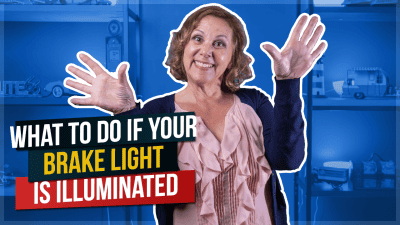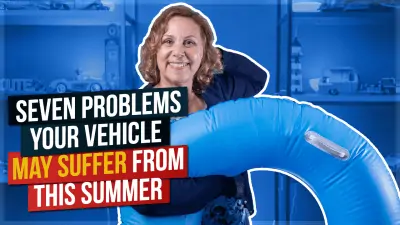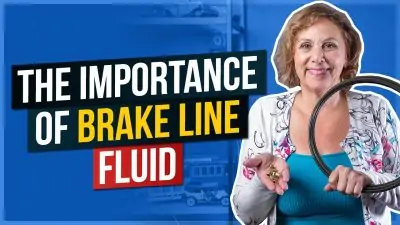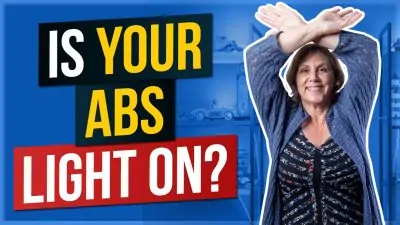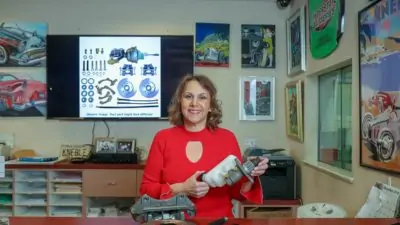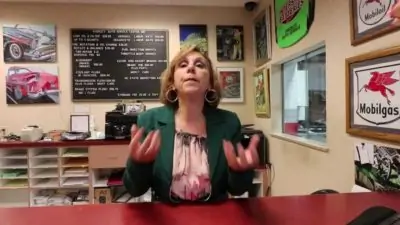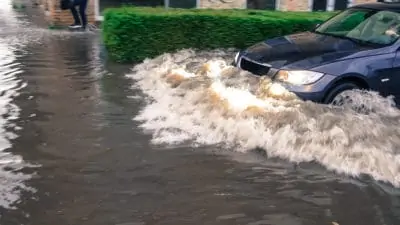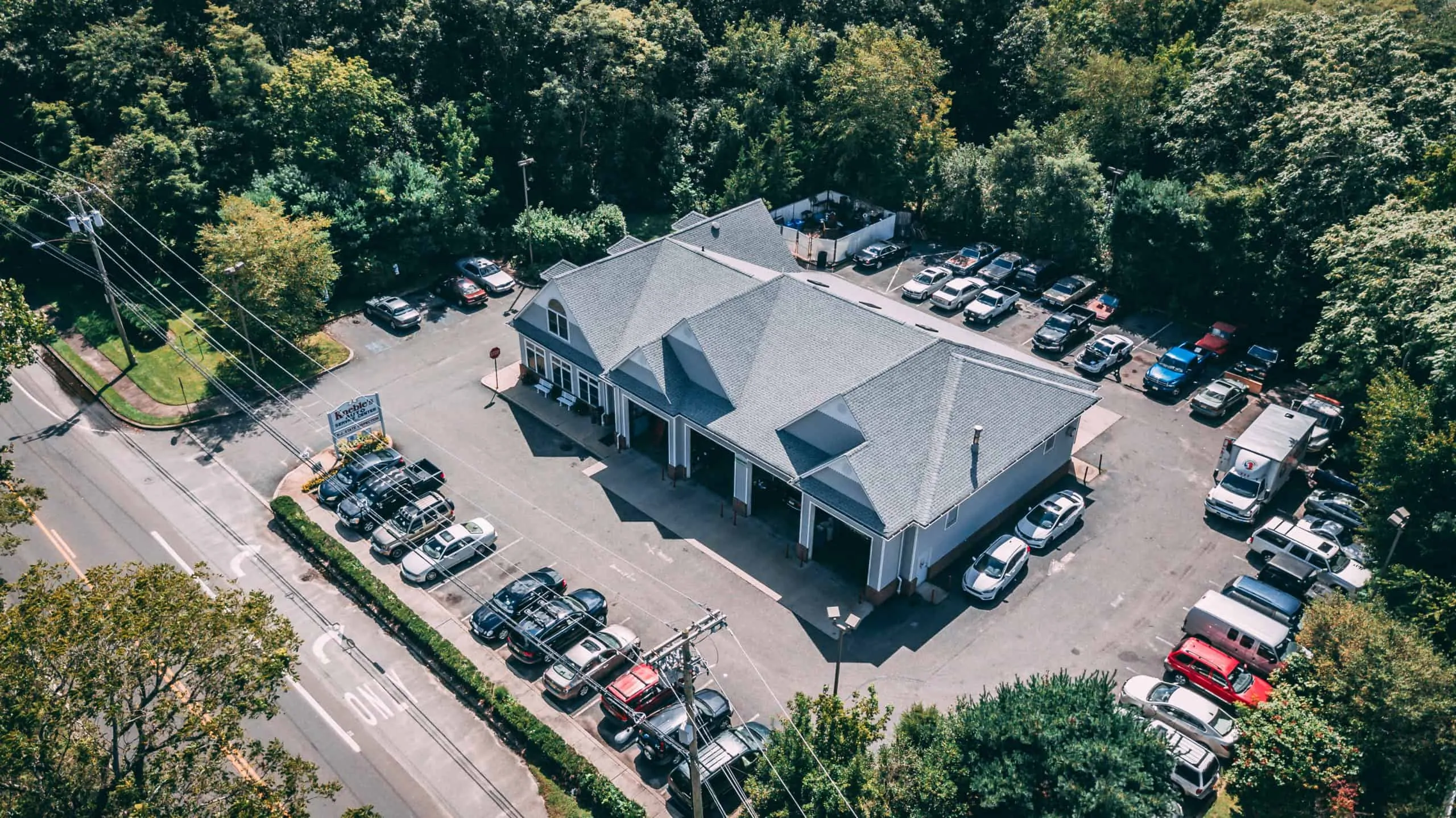Table of Contents
Your brakes are responsible for slowing down and stopping your car. It’s an unnerving feeling to press on the brake pedal and feel the pedal sink, not be firm, or not slow your car down. Let’s discuss what is involved in your car’s brake system, so you have a better understanding of how it works.
Transcript:
Are you that embarrassing car when pulling to a stop? Everyone’s staring at you because of that ear-piercing nails on a chalkboard sound. Hi, I’m Nancy at Kneble’s Auto Service Center. The braking systems are an extremely important component in your vehicle. It can be the difference between avoiding an accident or being in one. We here at Kneble’s Auto Service Center will perform a complimentary brake evaluation if you notice any issue with your brakes.
Now with this service, we will remove your tires in order to examine the condition of the brake pads or shoes, and the brake drums or the rotors depending on the design of your vehicle. Now, understand that new brake pads measure about 10 to 12 millimeters, so if we find your brake pads measure three millimeters in thickness, then we’re going to recommend replacing them. Don’t forget you have brakes in the front and in the rear of your vehicle. Other components of the braking systems evaluated are the caliber, the hoses and wheel speed sensor, and the hardware kits, which all should be assessed for the condition and the function.
Thank you for watching and be sure to check out new videos every Wednesday at 12:30. And don’t forget, we are still offering a free oil change for all healthcare workers and first responders through the end of May. For your convenience, schedule your next appointment online or through our website. By phoning (609) 625-3286, you can also get us. Thank you.
Your brake system is an enclosed hydraulic system. This means that it is not open to the atmosphere and it is activated via hydraulic pressure. The fluid that runs throughout the system is brake fluid and it should never be substituted with anything else. Brake fluid contains chemical properties that allow it to withstand heat and anti-corrosive properties to protect components within the system from deterioration. Lastly, brake fluid is rated with a DOT number and it is not recommended to mix brake fluids that do not have the same DOT rating.
How Your Brakes Work
When you press on the brake pedal, the master cylinder is actuated via a mechanical connection to the pedal. The amount of force needed to press on the brake pedal is reduced by the use of a vacuum-powered brake booster on most cars. This assistance is referred to as “power brakes” and only older model cars (such as classic cars) would be found today without power brakes.
The master cylinder contains a fluid reservoir where reserve brake fluid is stored, however, its most important function is to force the hydraulic pressure to the braking components (through the brake lines and hoses) to slow down the wheels. Given that the system requires hydraulic pressure to work, any leak in the braking system should be taken seriously to avoid a brake system failure.
There are two types of braking systems used in cars; disk brakes and drum brakes. Historically, modern cars featured disc brakes in the front and drum brakes in the rear. Since disc brakes are more efficient, manufacturers have moved towards using disc brake systems on both the front and back wheels.
How Disc Brakes Work
When the master cylinder sends pressure to the front brakes, the hydraulic pressure moves the piston in the brake caliper, forcing the brake pads on either side of the brake rotor to squeeze the rotor. As the brake pads squeeze against the rotor the friction slows down the rotor, which is attached to the wheels, therefore slowing the car down and bringing it to a stop as the braking process continues.
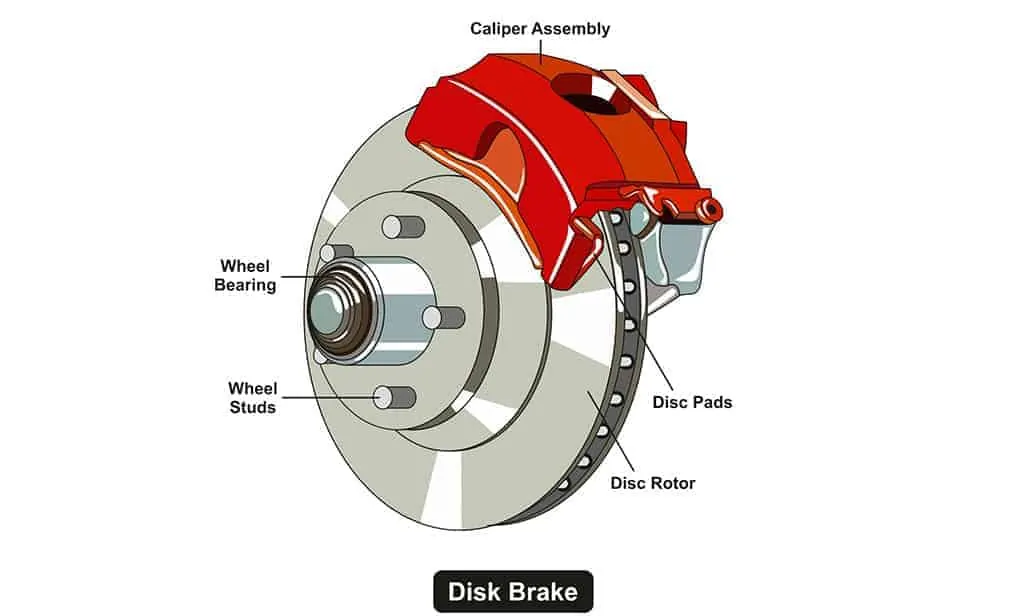
Brake pads are made of either ceramic, semi-metallic, or other organic materials and the rotors are typically made of metal. Over time brake pads wear out due to the constant friction, and to a lesser degree, the brake rotors can wear as well. Another common occurrence with the braking system is the warping of the brake rotors, which can occur if they are heated up continually. Overheating of rotors can occur from “two-foot” driving, where someone is applying light pressure on the brakes continually, or in vehicles that are towing trailers, as the extra weight will increase the amount of friction required to stop the car, and therefore overheat the rotors.
How Drum Brakes Work
Drum brakes are still found on many cars and more commonly found in the rear brakes. In a drum-braking environment, the pressure is metered such that roughly 30% of the hydraulic pressure is sent to the drum brakes. The fluid is sent to a wheel cylinder, which actuates a piston that pushes the brake shoes outward against the brake drum. This friction slows the wheels – in conjunction with the disc brakes – until the vehicle comes to a stop.
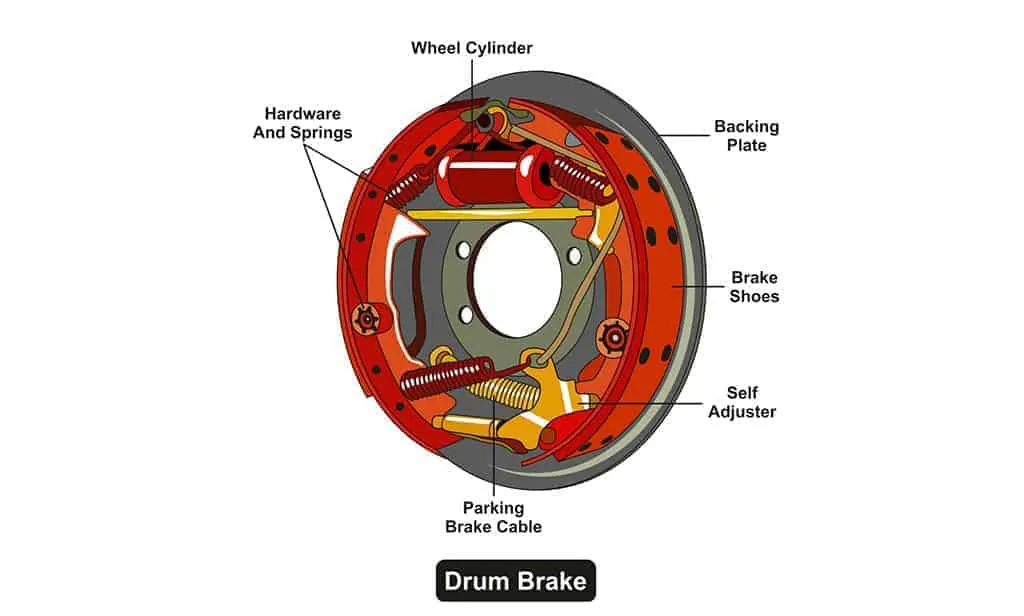
Brake Service Intervals
You should have your brake system inspected periodically, and when you bring your car in for service, we will always provide a general inspection, which covers the inspection of any visible braking systems. If your service requires the wheels to be removed (such as a tire rotation) this will allow us to fully inspect your brake systems. The replacement interval for brake pads and shoes will vary based on the type of vehicle, how often it is driven, and driving conditions.
Anti Lock Brake Systems (ABS)
When people encounter an emergency situation where they need to stop quickly, a common reaction is to push the brake pedal as hard as possible. This seems logical, however when the brakes are locked up, you lose the ability to effectively steer the car. In a situation such as ice or snow, the best course of action to maintain control is to pump the brakes, but this is difficult to do (and possibly remember) under pressure.
Anti-lock brake systems were developed in order to control braking in these situations to control skidding and allow the driver to maintain better steering control. The ABS system uses sensors placed at each of the wheels that detect the wheel speed. When the ABS controller senses that one or more wheels are locking up, it takes over braking function by controlling the flow of hydraulic pressure to the specific brake that correlates with the wheel or wheels that are locking up. This can happen many times per second and can result in a pulsating feeling in the brake pedal. The first time a driver senses the anti-lock brake system being activated and feels the brake pedal pulsating against their feet, they often think there is a problem with their brakes, but this is normal.
Parking Brake / Emergency Brake
All cars are equipped with a mechanical parking brake that is either operated by a hand lever, foot pedal, or in newer cars, by pressing a button. The parking brake mechanically applies the brakes on either the front or rear wheels such that the car cannot roll away if it were to not be fully put in park. Hand and foot brake systems apply the brakes via an attached brake cable that activates a braking mechanism in either a brake caliper or a brake drum.
These mechanical braking systems can be used in the event of a hydraulic brake failure; specifically, if you press the brake pedal and the car is not slowing down. For this reason, they are often referred to as emergency brakes as well.
It is recommended to use your parking brake from time to time so the cables do not seize from a lack of use, otherwise, they may not work when you need them to.
Brakes System Services & Repairs We Perform:
- Brake System Inspection
- Brake Pad Replacement
- Brake Fluid Flush
- Brake Rotor, Drum, Caliper, and Wheel Cylinder Replacement
- Replacement / Repair of Brake Lines and Hoses
- Master Cylinder Replacement
- Emergency Brake / Parking Brake Repair
- Brake System Diagnostics (pulsating, pulling on braking, leaks, etc.)
- Anti Lock Brake System Diagnosis and Repair
Ready to Make An Appointment For Your Brake Service or Repair?
At Kneble’s Auto Service Center we always want to make the process of getting your car serviced as convenient as possible. To ensure that we can get your car serviced in a timely manner, we ask that you make an appointment for your brake service.
We are able to accommodate those who desire to wait for their brake service as we feature a comfortable waiting area complete with TV, complimentary refreshments, a library, desk, and a charging station. And yes, we even have free Wi-Fi!
In some cases, we may determine that the car needs to stay overnight either due to the time required for service or the unavailability of parts.
If you need service and have not made an appointment you can always feel free to call us at (609) 625-3286 to get on the schedule.
Please note that we offer a shuttle service within a 10 miles radius of the shop (Somers Point, Ocean City, Margate, Brigantine, and surrounding areas).
Frequently Asked Questions About Brakes:
There is a high chance that your brake pads or shoes are worn out and you are hearing a wear sensor make contact with a brake rotor. In a worse case, you might be hearing the metal from the worn brakes making contact with the brake rotor or drum. In either case, we highly recommend that you bring the car in for an inspection before more damage occurs.
You might, but there are other causes of pulsation including warped rotors, loose brake calipers, or loose/faulty wheel bearings. Our expert brake technicians can make a diagnosis once they inspect your vehicle, so you should give us a call to discuss having us inspect the vehicle.
A malfunctioning or seized brake caliper often causes this. In some instances, unequal pressure is applied to one of the front brake calipers due to a pinched brake line or another hydraulic issue that can cause this. We recommend that you make an appointment to have one of our brake specialists inspect your vehicle.
Schedule an Appointment for Your Brake Repair
Brake Repair Knowledge Base
Brake Videos
Brake Articles
The Dangers of Driving Your Car Through Flood Water
Did you know driving a car through flood water can potentially ruin its engine? Learn about the damages flood waters can do to your vehicle.
Where to Get Your Vehicle’s Brakes Repaired?
Our Address
5473 Somers Point Road
Mays Landing, NJ 08330
Our Hours
Monday – Friday: 8:00am – 5:00pm
Saturday:
8:00am – 4:00pm
Sunday: Closed

